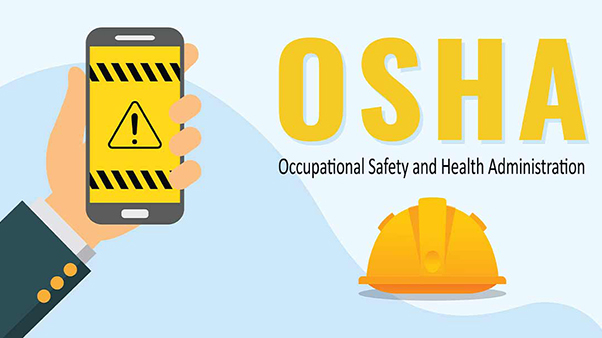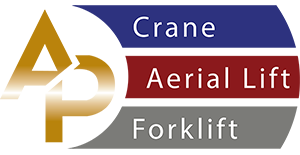


The eagerly anticipated revisions to OSHA's regulations on crane operator qualification were unveiled in a comprehensive 36-page portion of the Federal Register.. Originally enacted on August 9, 2010, this definitive standard mandated that operators attain certification through one of four approved methods:
OSHA has put forth a compelling proposition to eliminate rated lifting capacities from an existing provision that currently necessitates varying levels of certification based on the equipment's rated lifting capacities or lower. While testing organizations have the option to certify according to these capacities, it is not mandatory. The proposal delves into the crucial aspects of experience and competency evaluation, emphasizing their indispensable role in guaranteeing the qualification for safe and reliable operations.
Employers bear the responsibility of furnishing operators with comprehensive training that complements the type of training required to obtain certification. OSHA has clarified that operators will no longer be obligated to seek certification based on the rated lifting capacity of a specific crane in which they were tested to fulfill OSHA's certification criteria.
This update pertains to cranes and derricks in the construction industry, and it introduces a permanent extension that emphasizes the crucial responsibility of each employer to guarantee the competence of crane operators. This is achieved through mandatory training, certification, licensing, and obligatory evaluation. OSHA has expressed the view that adhering to the capacity requirement would necessitate substantial modifications to their existing certification procedures without yielding tangible safety benefits.
Certified operators are required to possess the necessary knowledge and skills to ensure the safe execution of crane operations across various construction sites. OSHA emphasizes that employers will continue to take proactive measures to verify that certified operators possess the ability to operate cranes safely at their specific worksites, irrespective of the rated lifting capacities of the cranes in question.
Employers should not solely rely on certification as the sole means of ensuring operator competency. This is primarily because certification programs typically evaluate a foundational level of crane operation knowledge and skills without adequately assessing an operator's proficiency in handling specific equipment or performing diverse operations required on a particular job site.
Numerous companies prioritize early certification as an integral component of their competency programs, viewing it as a reliable measure to assess an operator's aptitude in acquiring and applying essential knowledge for the safe operation of cranes.
The evaluation process for each operator encompasses a comprehensive journey, commencing with the assessment of their training credentials and benchmarks, and culminating in the confirmation of their proficiency through direct observation of their performance in crane-related tasks.
OSHA firmly believes that this proposal will effectively achieve the overarching objectives of the OSH Act more effectively than any corresponding national consensus standard. By keeping certification instructions and operator qualification requirements within OSHA's enforceable jurisdiction under the Act, it streamlines and consolidates all crane operator qualification requirements for convenient reference.
Employers' analyses have the potential to assess a broader range of operator skills beyond the scope of current certification examinations.
IUOE has spearheaded various tasks that demand specific skills, which are not assessed during the practical examination for certification.
Tasks such as equipment inspection, evaluating unstable loads, hoisting irregularly-sized objects, operating from barges, handling employee hoisting, load rigging, crane leveling, navigating confined spaces with potential risks to crane components other than the load line, making critical decisions regarding wind speed and environmental factors impacting equipment performance, executing multiple crane lifts, maneuvering while loaded or unloaded, working in proximity to power lines during light load hoisting, and conducting blind lifts where the operator lacks direct visibility of the load, are all examples of specific skills that extend beyond the scope of the current certification practical examination.
In addition, IUOE has aptly highlighted the necessity for distinct skills when operating equipment with unique attachments, notably emphasizing the specialized abilities required for operating cranes with clam bucket or haul line attachments. By drawing a comparison, IUOE underscores that the technical evaluation for operator certification solely covers fundamental operational functions, lacking the comprehensive assessment of the extensive range of tasks involved in crane operation. Without the proposed employer obligation to evaluate operators, companies could potentially assign experienced operators to handle tower cranes and other large equipment in various configurations and with diverse attachments, without ensuring the operators possess the essential knowledge and skills essential to address the concerns raised by IUOE and other stakeholders.
OSHA firmly asserts that they will not permit a certified operator to utilize their equipment without conducting an additional assessment to verify their competence. A training resource for crane operators wisely emphasizes that relying solely on a certificate as a measure of an operator's ability to safely operate a crane at the worksite would be ill-advised.
Improve your abilities by enrolling in our industry-leading overhead crane operator training program. Our extensive curriculum, experienced teachers, and dedication to safety standards make us the preferred choice for operators looking to thrive in their field.
Operators with limited experience can acquire a sufficient foundational knowledge of their crane to pass a certification exam, yet they may still lack the genuine qualification to independently and safely operate equipment for all their assigned tasks.
The evaluation requirement serves as a crucial mechanism to ensure that operators possess the ability to adapt to the inherent variations even within a single type of crane. Without this evaluation requirement, there would be no distinction made between the competency needed to operate the smallest and simplest mobile crane versus the largest and most intricate mobile crane.
The majority of concerns raised regarding the testing requirement primarily centered around the specifics of its necessity rather than disputing the notion that employers hold a responsibility to ensure operator competency.
Based on the comprehensive discussion thus far, OSHA is proposing a definitive clarification that underscores the enduring obligation for companies to assess their operators through technical training, while also ensuring their certification aligns with the existing standard. OSHA recognizes the significance of both the evaluation requirement and certification in maintaining stringent operator standards.
Are there more efficient methods to ensure that crane operators are fully competent to perform the specific tasks they will encounter, such as independent third-party evaluations?
When OSHA refers to an eligible or qualified operator, it signifies an individual who has undergone comprehensive training, obtained the necessary accreditation, and successfully passed an examination conducted by either the employer or an authorized institution, thereby fulfilling all the requisite steps.
Every operator must receive appropriate training for the specific construction activity they will be performing, obtain certification or licensure as per subpart CC requirements, and undergo an evaluation to assess their competency in safely operating the equipment to be utilized.
OSHA is presenting a proposal to clearly define and establish the requirement for organizations to assess their operators through training, while also ensuring their certification aligns with the current standard. This step aims to provide clarity and permanence to the operator evaluation process.
Previously, OSHA reasoned that the standard could mitigate risks through a combination of mandatory operator accreditation and other stipulations; however, it should be noted that OSHA did not assert that the standard would completely eliminate the significant hazards.
This provision would enable experienced and licensed operators to become familiar with new crane operations or slightly different equipment, while simultaneously undergoing evaluation by the company. It would also serve the purpose of allowing a newly hired operator, who is not yet certified, to operate the equipment once all the prerequisites for operator training are met.
Even a certified and evaluated operator may require additional training to ensure the safe operation of equipment or when undertaking significantly different types of lifts. Hence, the employer's obligation to provide training remains an ongoing responsibility that must be fulfilled as the operator's operational experiences expand.
Additionally, OSHA anticipates significant cost savings resulting from the proposed rule. In particular, OSHA estimates a substantial one-time cost reduction of $25,560,840 by eliminating the requirement for crane operators to be certified by capacity. This change would obviate the need for a considerable number of operators to acquire an additional certification. Read more here.
With our unique program, you can benefit from our hands-on crane training school. Our hands-on approach and professional teachers ensure that you obtain the necessary skills and confidence to succeed in crane operation.

An All Purpose Safety Training Solutions Company